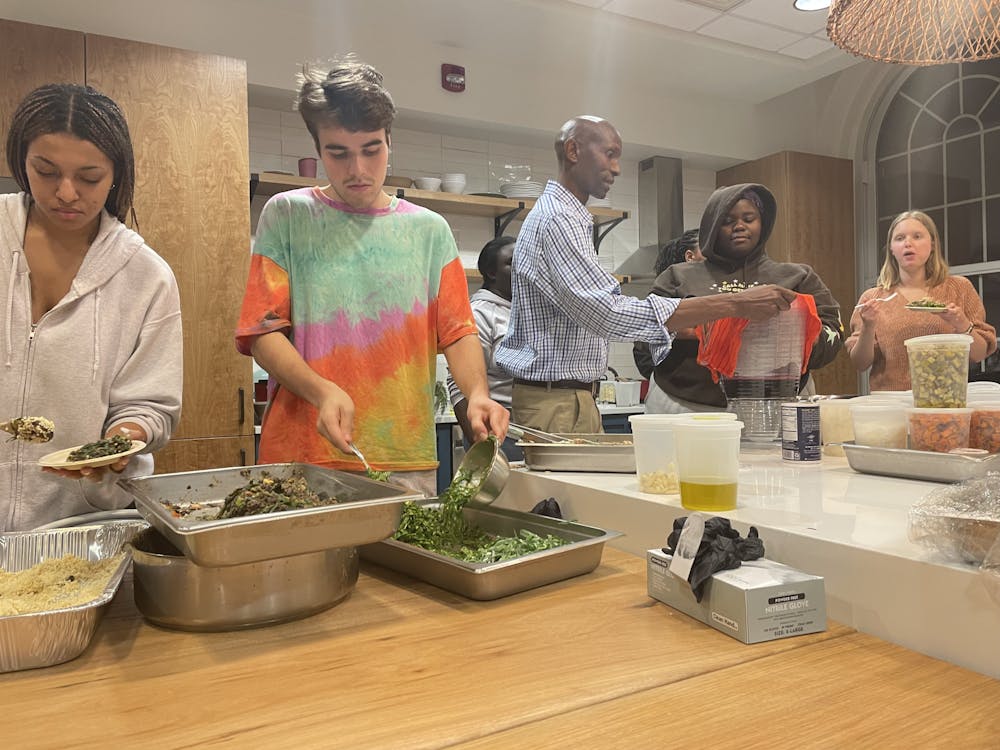While most people use B.C. and A.D., Chef Njathi Kabui uses his own scale to reference time.
“If I was to suggest a way of dividing time in the indigenous wisdom, it would be A.D. and D.A.,” he said.
D.A. stands for descendancy to ascendancy. Kabui defines this as periods of time, whether that be in a local area or on a global scale, where the food system was “moving from a place of less knowledge to a place of greater knowledge.”
In contrast, A.D. stands for ascendancy to descendancy, which Kabui believes to be the current national trend. He cited the continuous increases in chronic illness and diseases in America as an indicator for the negative impacts of the current food system. According to the Centers for Disease Control and Prevention, six in 10 adults in the U.S. live with chronic disease.
However, Kabui applauded Elon dining, specifically noting Elon Sustainability and local food partnerships.
“Elon is just a small minor island, which is a success story … in a state of D.A.” he said. “Globally, food is moving from ascendancy to descendancy.”
After his “chef takeover” with Elon Dining, Kabui headed to El Centro for a food justice dinner and discussion in partnership with the Center for Race, Ethnicity & Diversity Education and Elon Sustainability. The event, “A Black Food Odyssey in the American South,” was an in-depth cooking lesson infused with Kabui’s deep knowledge on sustainability, community and humanity.
He discussed the deep roots between his community and food and how the principles of health and community wellbeing are deeply intertwined.
“Food was very, very important. It was also very, very spiritual. You could not disconnect food from spirituality,” he said. “Spirituality is what you live for. It is the principles of which you live that advance humanity, that advance peace and advance sustainability.”
Kabui worked with students to make the meal, explaining each step along the way.
Senior Isabella Couture Del Valle attended the event because of her interests in food and sustainability, as well as her role with El Centro as a student worker.
“He appreciates food itself,” Couture Del Valle said. “He understands it to a level that not everyone does.”
Couture Del Valle said she was excited to take some of the lessons she learned at the dinner and implement them in her own cooking.
“I want to learn how to cook without oil now,” she said.
Kabui had started his lesson with explaining why he avoids using oil and water when he cooks.
“All oils have a smoke point, beyond which if you cook that oil, it becomes flat. All the goodness that you paid a lot of money for is lost,” he said. “Any oil that you cook beyond its smoke point becomes rancid.”
Kabui taught the group more than his recipes. He talked about the importance of food literacy and the concept of “death washing.”
“Death washing is to consume food in a way that is going to cause early death to you, to the environment and to others,” he said. “When I listen to people talk about investment, they invest in everything else: bitcoin, stocks, bonds, jobs. Which is good training, but hardly do you hear anyone say, ‘My health is part of my portfolio.’”


